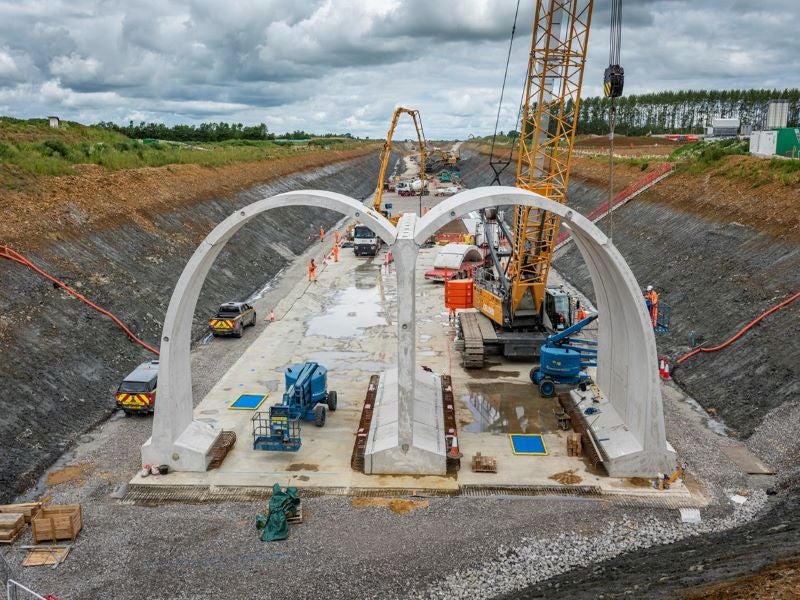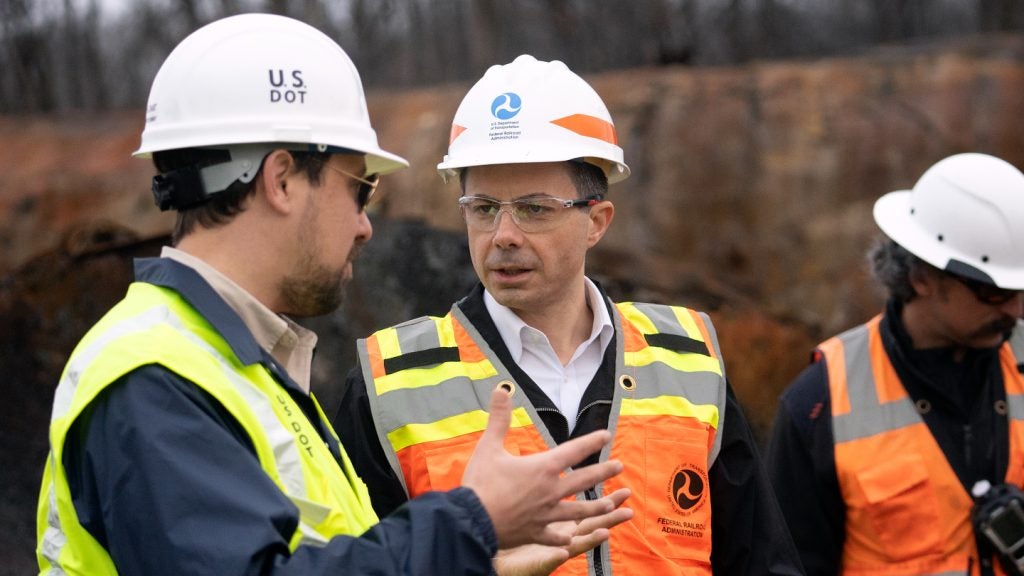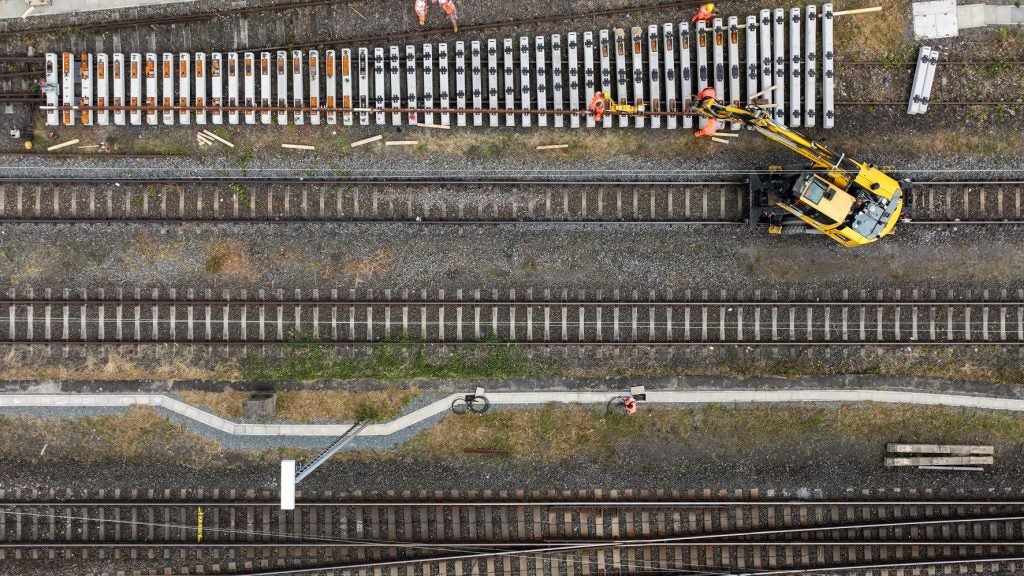
UK-based company High Speed 2 (HS2) has commenced construction on the 2.5km Chipping Warden green tunnel in Northamptonshire.
The tunnel has been designed ‘to blend the high-speed railway into the landscape and reduce disruption for communities’.
Using an off-site manufacturing approach, the green tunnel is being constructed on the surface.
More than 5,000 giant concrete tunnel segments, produced by Stanton Precast at a factory in Ilkeston Derbyshire, will be used in the project.
Later, the completed tunnel will be covered by earth and host trees, as well as hedgerows to adapt to the surrounding countryside.
Chipping Warden is one of the five ‘green tunnels’, which are being constructed under the HS2 project’s first phase.
How well do you really know your competitors?
Access the most comprehensive Company Profiles on the market, powered by GlobalData. Save hours of research. Gain competitive edge.

Thank you!
Your download email will arrive shortly
Not ready to buy yet? Download a free sample
We are confident about the unique quality of our Company Profiles. However, we want you to make the most beneficial decision for your business, so we offer a free sample that you can download by submitting the below form
By GlobalDataThe HS2 project is said to improve connectivity between London, Birmingham, and the north of England, in addition to offering a low carbon alternative to car and air travel.
HS2’s main works contractor EKFB, a team that includes Eiffage, Kier, Ferrovial Construction, and BAM Nuttall, developed an off-site approach.
HS2 project client Rohan Perin said: “Our trains will be powered by zero-carbon electricity but it’s also important to reduce the amount of carbon embedded in construction.
“The off-site manufacturing techniques being used will help cut the overall amount of carbon-intensive concrete and steel in the tunnel and make the whole process faster, more efficient and therefore less disruptive for the community.”
Recently, HS2 started construction on the Colne Valley Viaduct, situated on the outskirts of London.
The 3.4km bridge will pass across a series of lakes and waterways between Hillingdon and the M25.






